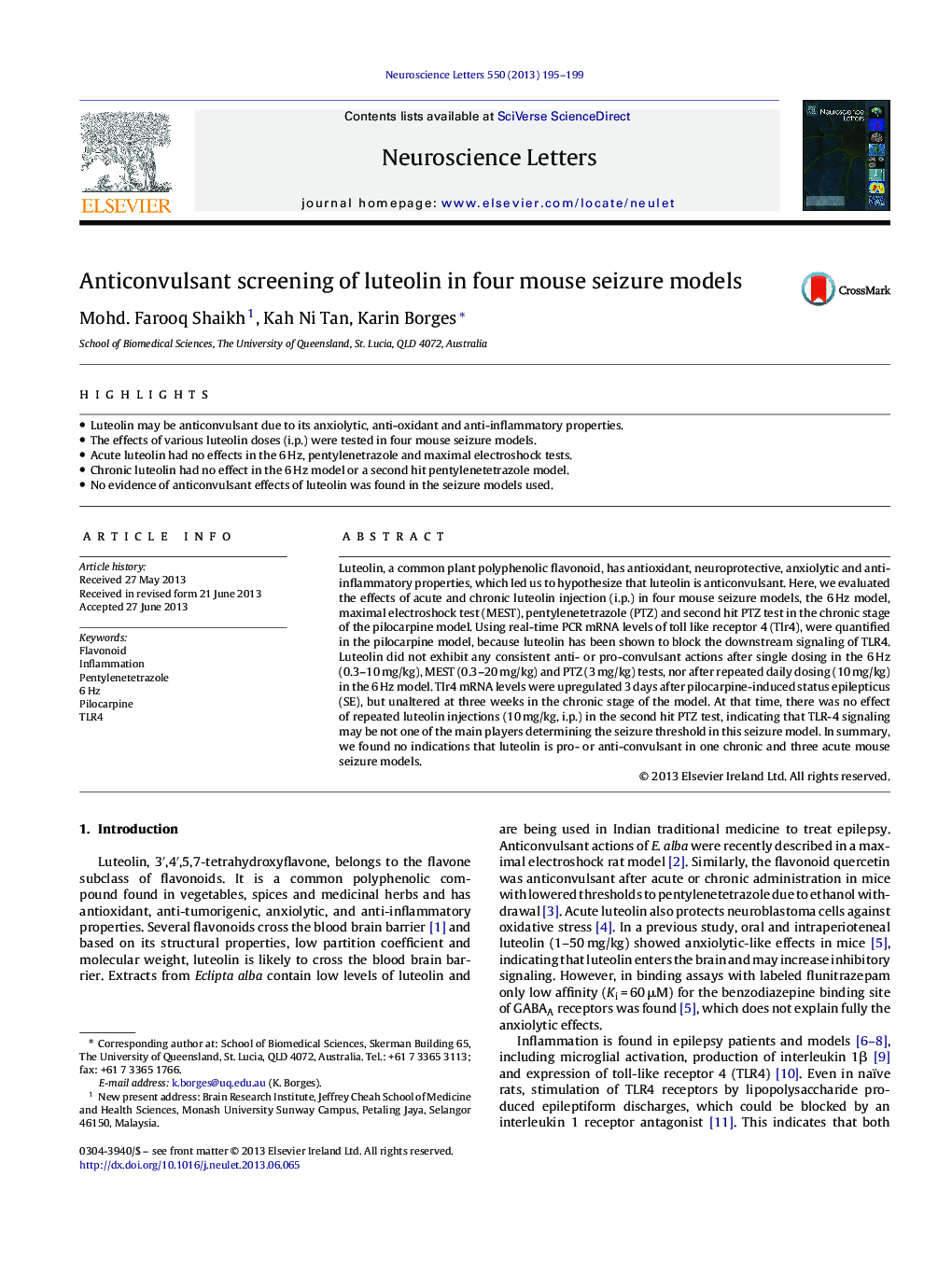| Article ID | Journal | Published Year | Pages | File Type |
|---|---|---|---|---|
| 6282941 | Neuroscience Letters | 2013 | 5 Pages |
Abstract
Luteolin, a common plant polyphenolic flavonoid, has antioxidant, neuroprotective, anxiolytic and anti-inflammatory properties, which led us to hypothesize that luteolin is anticonvulsant. Here, we evaluated the effects of acute and chronic luteolin injection (i.p.) in four mouse seizure models, the 6Â Hz model, maximal electroshock test (MEST), pentylenetetrazole (PTZ) and second hit PTZ test in the chronic stage of the pilocarpine model. Using real-time PCR mRNA levels of toll like receptor 4 (Tlr4), were quantified in the pilocarpine model, because luteolin has been shown to block the downstream signaling of TLR4. Luteolin did not exhibit any consistent anti- or pro-convulsant actions after single dosing in the 6Â Hz (0.3-10Â mg/kg), MEST (0.3-20Â mg/kg) and PTZ (3Â mg/kg) tests, nor after repeated daily dosing (10Â mg/kg) in the 6Â Hz model. Tlr4 mRNA levels were upregulated 3 days after pilocarpine-induced status epilepticus (SE), but unaltered at three weeks in the chronic stage of the model. At that time, there was no effect of repeated luteolin injections (10Â mg/kg, i.p.) in the second hit PTZ test, indicating that TLR-4 signaling may be not one of the main players determining the seizure threshold in this seizure model. In summary, we found no indications that luteolin is pro- or anti-convulsant in one chronic and three acute mouse seizure models.
Related Topics
Life Sciences
Neuroscience
Neuroscience (General)
Authors
Mohd. Farooq Shaikh, Kah Ni Tan, Karin Borges,
